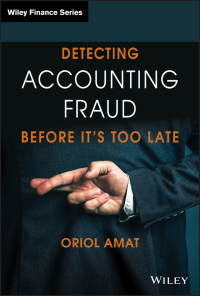Question
Spector v. Konover, 747 A.2d 39 (Conn. Ct. App. 2000) (Mallor, 16th Ed., p. 1016). Martin Spector, Abner Rosenberg, Marvin Patron, and Simon Konover agreed
Spector v. Konover, 747 A.2d 39 (Conn. Ct. App. 2000) (Mallor, 16th Ed., p. 1016). Martin Spector, Abner Rosenberg, Marvin Patron, and Simon Konover agreed to build a shopping plaza in Seymour, Connecticut. There was no written partnership agreement. The four orally formed Tri Town Realty Co., a partnership in which each partner received a 25 percent interest. Spector and Rosenberg contributed a land lease, while Patron and Konover were charged with building, operating, and managing the shopping plaza. Konover and Patron initially managed the shopping plaza themselves, charging the partnership for any out-of-pocket expenses they incurred. Over time, as Konover and Patron amassed 20 to 30 shopping centers, they formed K and P Management Company. K and P Management hired managers and leasing agents to manage all of Konover and Patrons properties and charged management fees and leasing commissions to all of their properties, including Tri Town. Eventually, K and P Management was replaced by the Konover Management Corporation, which managed the Tri Town plaza for the last 10 years of the partnership. Konovers duties in managing Tri Town included the preparation and distribution of monthly reports to each of the partners. In the early 1980s, Spector believed that Konovers reports did not adequately explain the finances of the partnership. Konover also determined the amount of money that was to be distributed to the partners as profit, and Spector felt that the amount being distributed was too low. In June 1985, Spector requested an increase in the distributions. In September 1985, Konover increased the distributions from $500 per month to $1,200 per month. In February 1989, Spector again requested an increase in the distribution of profits and an explanation of various expenses appearing on the monthly report. Spector did not receive a response from Konover, and, in May 1989, Spector demanded that the partnership be terminated. Konover did not respond. In April 1990, Konover stopped making profit distributions to Spector. In 1994, Spector hired a certified public accountant to review the financial records of the partnership. The accountants review revealed that Konover did not maintain any account dedicated solely to the Tri Town partnership. Rather, the Tri Town partnership funds were commingled with funds from several other Konover entities, and all the funds were commingled in one account called the K and R Associates Trust Fund (K and R). The accountant further discovered that not only were the funds commingled in one account, but also the Tri Town funds were used by other properties owned by Konover. Even though Tri Town funds supposedly were kept in the K and R checking account, the balance of the entire K and R checking account actually was far less than the amount purported to be in the Tri Town partnership account. Additionally, interest earned on Tri Town funds was not credited to Tri Towns account. Konover admitted to diverting funds between his various entities. He and several of his employees said that by sharing the funds in the K and R account, Konover could use one propertys funds to cover expenses incurred by another property. For instance, if one property needed repairs but did not have enough cash to pay for the repairs, Konover would use cash from another property to pay for those repairs. It was, therefore, advantageous for him to commingle the funds of different Konover entities so that one propertys funds could be used to cover an overdraft of another entity. Spector sued Konover seeking damages stemming from Konovers alleged breaches of his fiduciary duties in managing the Tri Town partnership. The trial court found that Konover proved that he dealt with Spector fairly and breached no fiduciary duty. Spector appealed to the Appellate Court of Connecticut. Base of the case answer true or false(explain why)
1. In the absence of an agreement to the contrary, the four partners in Tri Town Realty Co. share profits and losses equally, have an equal voice in managing the business, and have the right to an accounting. Those partners, however, do not own the assets of the partnership.
2. As a partner in Tri Town Realty Co., Spector has the right to inspect the financial records of Tri Town Realty Co., but cannot hire an accountant to conduct that inspection on his behalf.
3. The partners of Tri Town Realty Co. do not have the right to elect annually either report their share of the partnership income on their individual federal income tax return, or to have those profits taxed at the partnership level.
4. The spoken partnership agreement among Spector, Rosenberg, Patron and Konover to develop the Tri Town shopping plaza in Seymour, Connecticut, is not governed by the Statute of Frauds and can be enforced in the absence of written, signed evidence proving its existence.
5. Konover has breached his fiduciary duty of loyalty (but not his fiduciary duty to account) by commingling the funds of Tri Town Realty Co. with the funds of Konovers other real estate partnerships and by charging Tri Town Realty Co. management fees and leasing commissions.
Step by Step Solution
There are 3 Steps involved in it
Step: 1

Get Instant Access to Expert-Tailored Solutions
See step-by-step solutions with expert insights and AI powered tools for academic success
Step: 2

Step: 3

Ace Your Homework with AI
Get the answers you need in no time with our AI-driven, step-by-step assistance
Get Started


